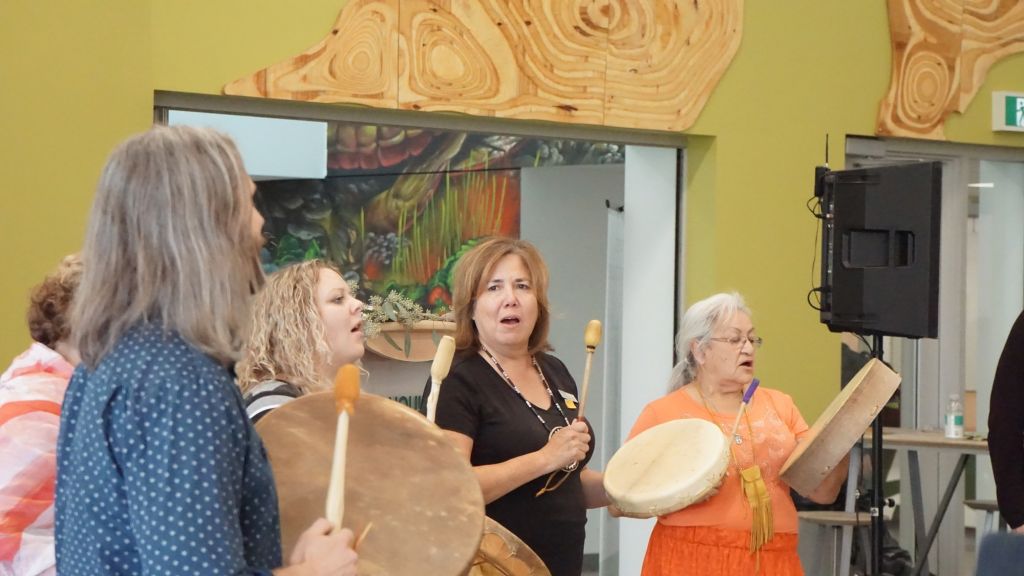“Human trafficking is right in our communities – not out there but right here.”
They were the words of Grandmother Isabelle Meawasige, during her talk held on Wednesday, Oct. 3 in the DARE Districts’s Indigenous Commons room.
“Highway 17 that runs through Ontario is where most of the trafficking takes place,” said Meawasige, an elder with the Serpent River First Nation. “It connects all these northern communities and traffics young women and girls into the major cities.”
Her words were spoken in conjunction with a larger project on campus called Project Lighthouse. The project is designed to address sexual violence and help young people on campus navigate healthy sexual relationships.
“The first 6 to 10 weeks of the semester have the most sexual assaults,” remarked sexual violence prevention and harm reduction coordinator, Sarah Crawford, who is spearheading the campaign. “It is what is referred to as the red zone. That is why we organize these talks and events early on in the semester.”
Crawford shines a light on sexual assault problems on campus, but also wanted to address the larger national problem of human trafficking in Canada. According to an RCMP study conducted in 2013, close to 1,200 aboriginal women have gone missing or been murdered in Canada since 1980.
Human trafficking regularly underpins this disturbing phenomenon.
Meawasige has spent the last seven years working to help victims of human trafficking in Canada and spoke about the circumstances that lead many women in northern and indigenous communities to it.
“There is a lot of profit to be made in human trafficking,” said Meawsige. “The poverty we live in makes us so vulnerable to traffic.”
Meawasige works closely with Persons Against the Crime of Trafficking in Humans (PACT) headquartered in Ottawa and has bridged a relationship with other Grandmothers in First Nations communities to address this issue.
“We use our culture to empower our girls,” said Meawasige. “Grandmothers have a lot of wisdom to give and young people pick up what they need.”
Myths about the nature of human trafficking were also challenged throughout the talk. For instance, violence is not always the only form of coercion; often young women and girls are victims of grooming.
“Often these young girls are promised nice things and a new life by their groomers,” remarked Meawasige. “This is how it starts and then they slowly break their spirits.”
The locality of where this form of human traffic occurs was also jarring.
Social worker program student Nicole Macnevin attended the event and found it very informative.
“I didn’t know a lot about human trafficking in Ottawa,” said Macnevin. “I think it is important to have these discussions about the oppression of women and to have them more mainstream.”
Meawasige spoke about the importance of combating the problem of human trafficking at the ground level.
“People need to develop new skills to deal with the new way traffickers hunt,” said Meawasige.
Any form of defence against human trafficking in Canada will have to start with a local awareness of the problem. According to Meawasige, the importance of remaining informed about this problem is crucial.
Meawasige will be giving a speech at the United Nations in New York City in April of 2019 as part of her continued commitment to keep this issue at the forefront of discussion.
“I wanna kick real good until I can’t get out of my bed anymore,” said Meawasige. “People are waking up. Don’t go back to sleep. Don’t.”
For more information on Project lighthouse events visit: http://www.algonquincollege.com/projectlighthouse/events/.
Files by Asen Aleksandrov


